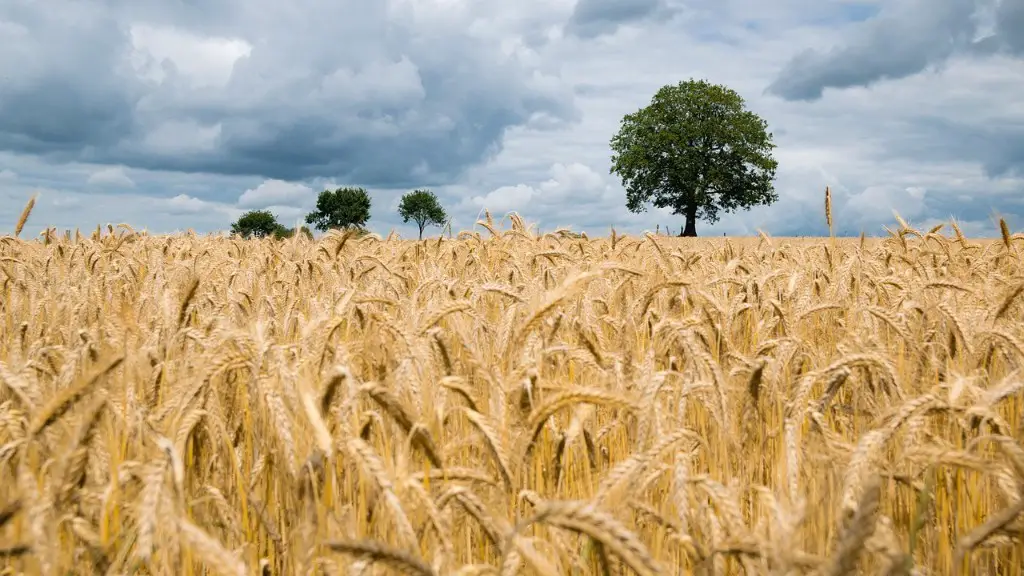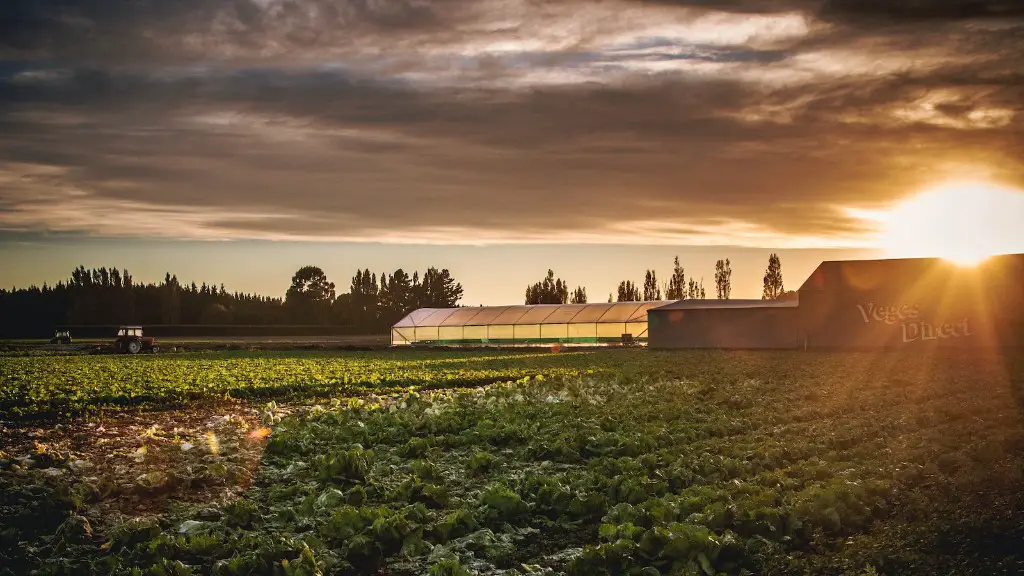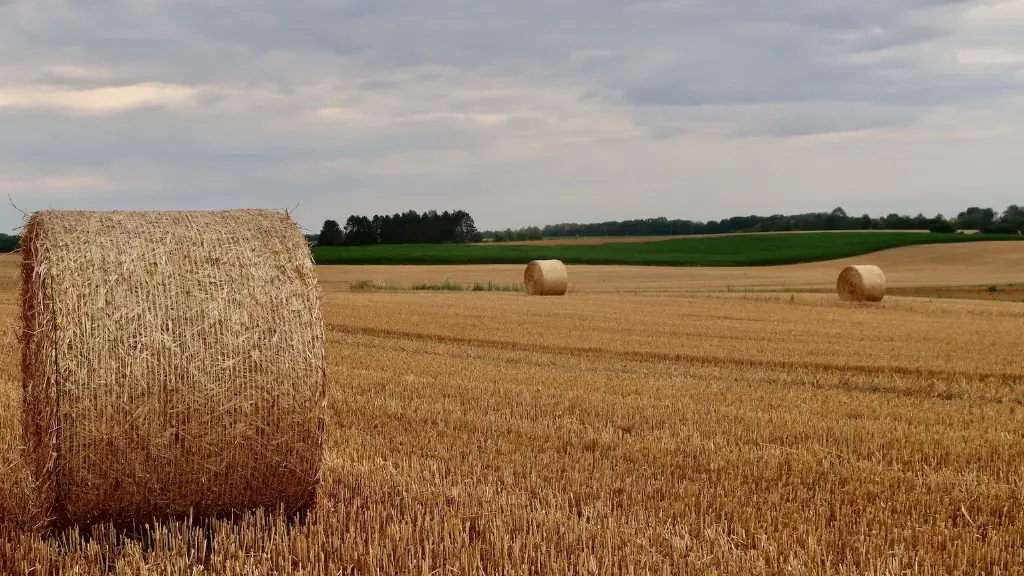Agriculture engineering is a complex and rapidly-changing field. It involves the application of biological, physical and engineering sciences to the production of food, fiber, and renewable energy. An agriculture engineer is responsible for developing and implementing practical projects involving the managing, harvesting and processing of agricultural resources. In particular, an agriculture engineer utilize their expertise to create, develop, and improve upon agricultural infrastructure such as irrigation systems, greenhouses and other production support systems. They also assess the environmental impacts of agricultural activities and help implement sustainable solutions.
An agriculture engineer requires a range of knowledge and skills. Most importantly, they need to be well-versed in the principles of biology, physics, and mathematics in order to successfully design and manage complex systems. An agriculture engineer must also have experience in the principles of engineering, economics, and bioengineering if their projects are to be successful. Additionally, agriculture engineers must have the ability to work independently and possess problem-solving and communication skills.
The job of an agriculture engineer entails a constant stream of work. As the field is constantly changing, engineers must remain abreast of new developments and technologies. They must monitor soil conditions, water supply systems and changing weather patterns. Additionally, agriculture engineers must also have an understanding of the economic ramifications of their projects. In order to stay up-to-date, they need to stay in contact with companies and organizations that specialize in the development and application of agricultural technology.
An agriculture engineer must also have good leadership skills. In order to effectively manage projects, they must be able to motivate and coordinate personnel in order to ensure proper execution. Additionally, engineers are expected to ensure that all solutions meet the requirements of their clients and effectively integrate with existing infrastructure.
In addition to these skills, an agriculture engineer must also be willing to work long hours in sometimes difficult circumstances. Working in an agricultural environment means that engineers must be prepared to work in hot, humid environments and may be subject to dust and chemical hazards.
Agricultural engineering is a rewarding and challenging career path. An agriculture engineer who is willing to put in the time and effort necessary to develop and implement successful projects can expect to advance in their career and achieve a rewarding level of professional and personal success.
Equipment Knowledge
One of the most important components of success in the field of agricultural engineering is having a wide knowledge and experience in the various types of agricultural equipment and the technologies used with them. Agriculture engineers must be proficient in the operation, design, and repair of agricultural equipment. Additionally, they must be able to troubleshoot malfunctions, instruct operators on proper usage, and maintain records of equipment performance. They must also be able to diagnose problems, develop solutions, and coordinate repairs.
Agriculture engineers must also have extensive knowledge of the different types of technologies used with such equipment. This includes gaining an understanding of GPS systems, data loggers, and other technologies in order to be able to develop and maintain essential agricultural systems.
Furthermore, some agriculture engineers are expected to know and understand the various types of software used in the field. This includes having the ability to use various mapping programs, agrotechnology and engineering software, as well as understanding the various types of software involved with the tracking, monitoring and management of agricultural resources.
Engineers must also have an in-depth knowledge of industry specific regulations and of the various types of supplies and materials used in the production of agricultural products. In order to accurately assess projects, engineers must have an understanding of the various types of regulations, industry standards and best practices.
Technical Writing
Technical writing is one of the most essential skills for an agriculture engineer. They must ensure that all their projects are documented properly and that all pertinent information is included and easy to understand. Technical writing requires an engineer to analyze, research and compose clear and informative reports, documents and presentations. This is especially important in an agricultural environment, as there may be multiple stakeholders, each of which needs to be accurately informed and motivated.
Furthermore, engineers must also be able to communicate their ideas to others, both within and outside the organization. Additionally, they must have the ability to explain complex concepts and technical details in a way that is understandable for people without technical backgrounds. This includes working with clients, government officials and other stakeholders.
Agriculture engineers must also have the ability to effectively write safety reports. This includes being able to effectively analyze a situation, identify potential hazards and recommend solutions. Additionally, they must be able to accurately document all safety issues and recommend suitable preventative measures.
Interpersonal Skills
Interpersonal skills are also essential for success in agricultural engineering. Agriculture engineers must be able to effectively interact with people, both individually and in groups. This means effectively conveying technical concepts and processes in a language that non-technical stakeholders can easily understand. Additionally, they must be able to build strong relationships with clients, colleagues, government representatives, and the public.
Moreover, engineers must be able to work independently and collaborate with others in order to develop successful projects. This includes building and maintaining a positive rapport with colleagues, subordinates, and those working on different aspects of the project. Furthermore, engineers must be able to motivate their team and manage any conflicts that may arise.
Finally, engineers must be able to take direction and be willing to take responsibility together with their team members. This often requires quickly adapting to changing conditions as well as communicating ideas in a manner that meets the organization’s objectives.
Project Management
Agriculture engineers must also be capable of managing projects. This includes planning and developing projects, setting deadlines, determining performance goals, and allocating resources. Additionally, they must be able to accurately track and monitor problems, identify new opportunities, and possess an aptitude for foreseeing potential risks.
Successful project management in the agricultural engineering industry requires being able to negotiate schedules and budgets, as well as examining the economic impact of projects. Additionally, agriculture engineers must be able to develop and manage relationships with various suppliers, vendors and clients during the project’s lifecycle.
Furthermore, engineers must have an understanding of global supply chains and coordinate the transportation of goods across borders. Additionally, they must have a clear understanding of the various legal and economic ramifications of different projects and develop strategies to manage risk.
Research and Professional Development
In order to remain in good standing in the agricultural engineering industry, engineers must be willing to continuously develop and update their skills. This includes attending conferences, seminars, and other events in order to learn about current developments in the industry and stay abreast with the latest technology. Additionally, engineers should be able to recognize areas in which they can develop and take advantage of any educational opportunities that may be available.
Additionally, engineers must also be willing to conduct their own research or develop and lead research teams in order to stay one step ahead of the competition. This may involve researching new methods, developing new products and processes, and researching new trends in the agricultural engineering industry.
Finally, engineers must be willing to network with colleagues and establish contacts in the industry. This may involve attending meetings and conferences, working with vendors, clients and representatives from other organizations, establishing relationships with industry consultants, maintaining a professional presence online, and engaging in relevant industry forums.





